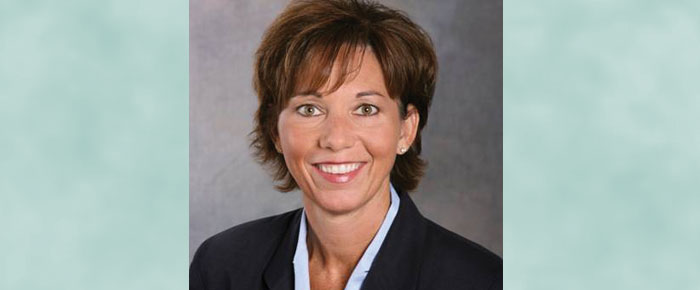
Lisa Grigg is the director of Fraud Investigations Group in the Global Financial Crimes Compliance Division at Bank of America Merrill Lynch. Grigg has held various prior roles at Bank of America including the Bank Secrecy Act officer. She is currently responsible for ensuring compliance with the Bank Secrecy Act and related federal laws as amended and supplemented by the relevant provisions of the USA Patriot Act, as well as other applicable laws and regulations. Grigg is active in the Industry. She is currently serving as the co-chair for the ACAMS Carolinas Chapter and was on the advisory board for the ACAMS 18th Annual International AML & Financial Crime Conference in Hollywood, Florida.
ACAMS Today: Could you share some of the advantages and disadvantages that you have experienced from having a background in law enforcement while transitioning to the private sector?
Lisa Grigg: My prior law enforcement experience has afforded me a unique perspective; one that has helped me to understand end-to-end the application of laws and regulations, the importance of getting the facts and a full-circle approach to issues. In both the private and public sectors, I also continue to find that having a broad network is very advantageous when working and addressing issues in this industry.
AT: Are there any surprises about working inside the private sector that you did not expect?
LG: I think we must first recognize that when I entered the private sector in the late 1990s, things were much different. However, what immediately struck me when I entered the private sector was the differences in the missions in this field are not that great between public and private. People in the private sector as in the public sector are driven to do the right thing; however, in law enforcement information was much easier to come by. In the private sector, you only see a piece of the puzzle and are at times unable to put two and two together that may be obvious from a law enforcement or regulatory vantage point.
AT: Based on your own experiences, are there misconceptions from both the law enforcement side and the private sector side when dealing with each other?
LG: The most common misconception would be how each views the other's role in the investigative process. The private sector's role is to report suspicious activity, while it's law enforcement's role to investigate the activity. All too often, due to where the industry has evolved today there can be an expectation for the private sector to be more involved in the investigative process with an overreliance on these resources by external enforcement authorities.
AT: What top three lessons have you learned on how both law enforcement and private sector professionals can enhance their partnership?
LG: A) Understanding of roles and expectations, B) Thought leadership and information sharing through appropriate means is critical as it relates to the constantly evolving environment, C) Partnerships between private and public is key to the mission and success in this space.
AT: What is the key to fostering more cooperation between law enforcement and financial institutions?
LG: There have been great strides made in this regard over the past 10 years. Trust and understanding of each constituent's constraints and objectives is beneficial in fostering dialog and opening up channels for communication.
AT: During the 18th Annual International AML & Financial Crime Conference in Hollywood, Florida, the panel on Redefining AML Programs addressed the challenge faced by institutions in dealing with separate messages from law enforcement and regulators. In your opinion, what can the private sector, law enforcement and regulatory agencies do to communicate effectively?
LG: Be transparent and forthright in communications and understanding that words mean different things to different people based on experiences, etc. Providing context, an explanation or an example to a message may make a big difference in understanding and responding.
AT: What has been your proudest accomplishment in your private sector role and what was your proudest accomplishment in your law enforcement career?
LG: In both roles, I have contributed in small ways to protecting and securing our nation and have helped to get those who want to do harm off our streets.
AT: What qualifications do you look for in an ideal investigative compliance team candidate?
LG: They must be intuitive, forthright and tech savvy. They must have excellent communication skills (written and oral), good judgment, the ability to network and they absolutely must be able to apply regulations and laws to their daily work.
AT: What recommendations would you give on how to have a successful career in the current AML & financial crime environment?
LG: One must understand the application of the law and regulations for which you are working under, stay abreast of the constantly evolving threat environment, know when to escalate and use good judgment when making decisions.
AT: What three things should a compliance professional always incorporate into their AML policies and procedures program?
LG:
- CIP
- Due diligence
- Monitoring and reporting
Interviewed by: M. Carolina Rivas, CAMS, principal, Engaged AML Solutions, Inc., Plantation, Florida, USA, carolinarl@engagedaml.com










